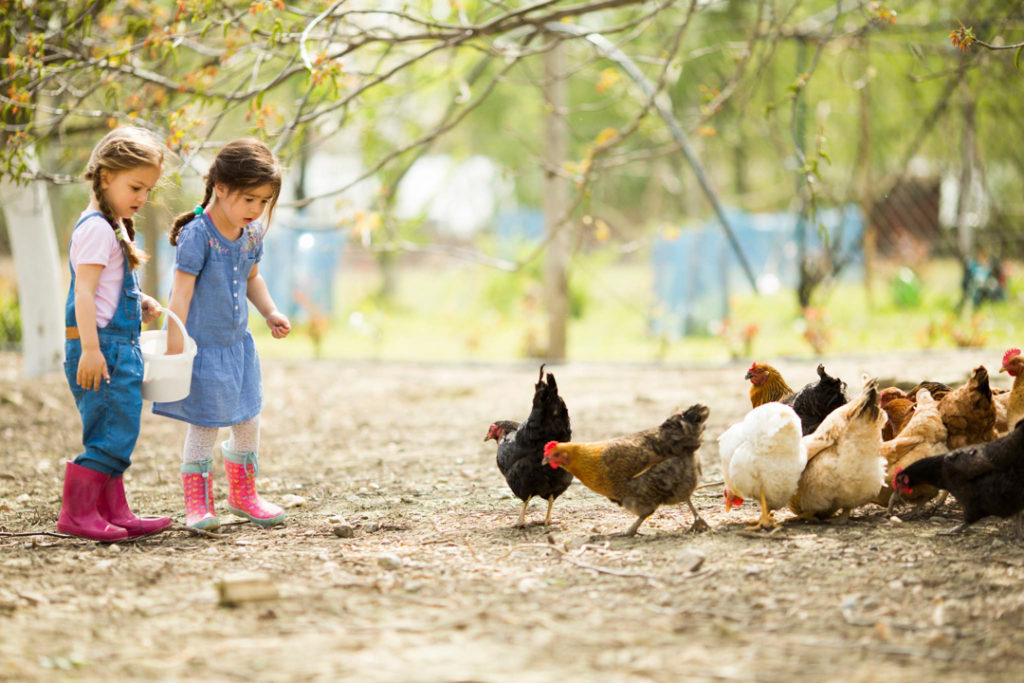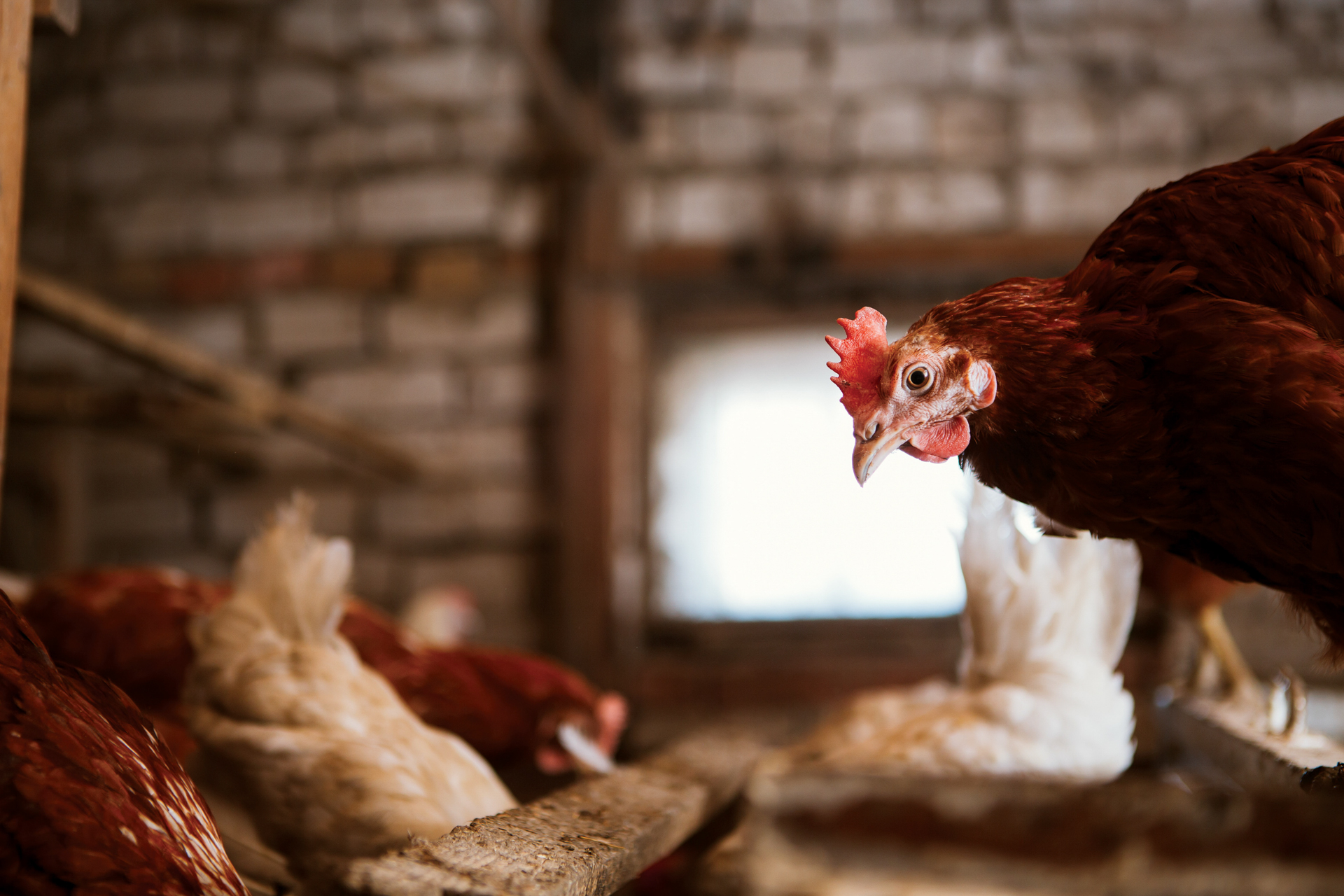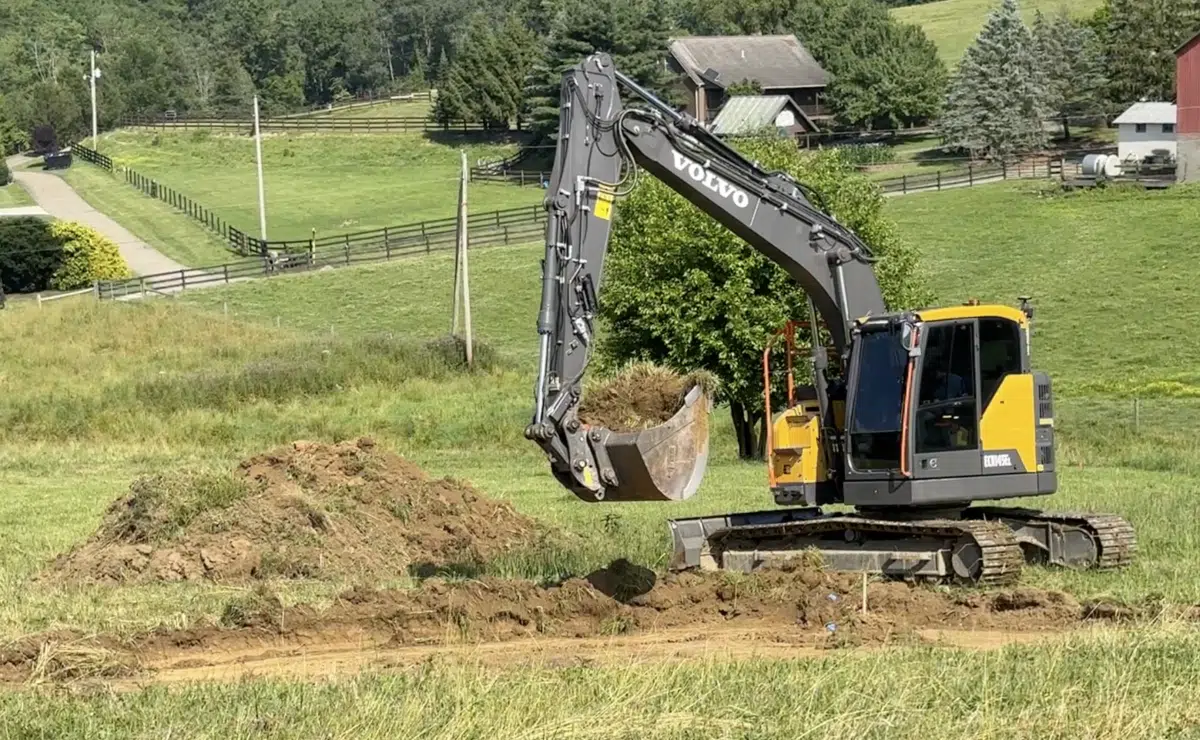Confessions of a Steward with Joel Salatin
Thinking like an animal is not always easy, especially if you’re trying to think like a chicken. In this article, I want to dive into one of the single biggest tensions in raising farmstead egg-laying chickens, and it all stems from chicken psychology.
Like all animals, chickens love routine. Temple Grandin, maven of animal psychology, points out that animals live only in the moment. Yes, they have memory, but they have no datebook. They never think about what they need to do tomorrow.
Everything is about instant gratification. No chicken ever said to her friends, “That hen is kind of small and timid; let’s let her have first go at the feeder, and the rest of us ladies will join her later.” You’ll never see that happen. Henpecked is a real thing. Sometimes they eat each other. Animals always eat dessert first, they are all bullies, and they don’t like change.
Temple Grandin says chickens live so much in the moment that they notice the color of your hat. They notice what kind of clothes you’re wearing and your facial demeanor. Let it be established once and for all: chickens like routine. They don’t like different. To be sure, they like chasing down worms in different locations, but they’re not thinking about their location; they’re just eating worms. The moment is all that matters. While chasing down worms, the hen may have no idea she just traversed a hundred yards. Sometimes they look up with a lost look. Most of the time, they want to be where they are accustomed.

What that means is that laying hens want a secure home. They don’t want you to change coops on them. They want to sleep in the same spot every night. They want to lay eggs in the same place every day. Don’t confuse routine with discovery. Chickens have unlimited time to scope out new and interesting places. That’s part of their routine, just like a goat’s routine is trying to figure out a more clever way to escape.
If a chicken finds an enjoyable place, she’ll return to it. Exploration then gives way to familiarity. This is an issue on smaller acreages that want to free-range laying hens. Hens offer a boatload of benefits, from eating kitchen scraps to eliminating ticks to spreading cow pies. No farmstead animals work harder to provide benefits than the lowly hen. But she’s curious, explorative, and always looking for something familiar.
She’ll range out a couple hundred yards from security. Normally that security is where her feed, water, nest, and sleeping quarters are. In smaller acreages, that range might easily cover the entire property. That’s when familiarity kicks in. If you use portable housing, like what I call an eggmobile, you can’t move it far enough away from familiar territory to keep the hen from going back to a favorite spot.
I do not recommend eggmobiles for acreages under 50 because you can’t move them far enough into unfamiliar territory to break their routine of returning to something familiar. And you know what familiar is. It’s the lawnmower handle, the porch swing, the tractor steering wheel. Those are nice roost spots. How about nests? That secluded spot in the corner of the hay barn or a bundle of twine in the back of the shop attract the exploring chicken, and suddenly she has a new familiar routine. The change of nesting place means her caretaker now enjoys an Easter egg hunt every day instead of finding the eggs in designated nest boxes.
To read the full story, purchase a July back issue here.
Subscribe today to get the full stories in print each month!
__________
Joel Salatin co-owns, with his family, Polyface Farm in Swoope, Virginia. Four generations of his family currently live and work on the farm, and his farm services more than 5,000 families, 50 restaurants, 10 retail outlets, and a farmers’ market with salad bar beef, pigaerator pork, pastured poultry, and forestry products. When he’s not on the road speaking, he’s at home on the farm, keeping the callouses on his hands and dirt under his fingernails, mentoring young people, inspiring visitors, and promoting local, regenerative food and farming systems. Salatin has published 15 books, and he is the editor of The Stockman Grass Farmer, granddaddy catalyst for the grass farming movement. He passionately defends small farms, local food systems, and the right to opt out of the conventional food paradigm.




